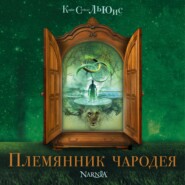По всем вопросам обращайтесь на: info@litportal.ru
(©) 2003-2025.
✖
Collected Letters Volume Three: Narnia, Cambridge and Joy 1950–1963
Настройки чтения
Размер шрифта
Высота строк
Поля
I did’nt know arm chairs were ever cleaned: should they be?
(#ulink_9913ee2e-fad4-5c4b-afb8-e6358a38118e)
Yours ignorantly,
C. S. Lewis
TO GEORGE SAYER(W): TS
Magdalen College,
Oxford.
26th March 1951.
My dear George,
The time has come, the Walrus said, to talk of many things
(#ulink_66bfd10d-bcf8-579e-bec5-27a69ecf432e)–but chiefly of when you next propose to take a bed in College. Any time you like after the 23rd of next month, Mondays excepted, and also excepting 8th and 15th May.
Pray, Sir, how does Moira do? And Cardinal Schwanda?
(#ulink_9456275d-62fa-5507-ab9f-cdb9cc1f5ee7) All well here except myself, who have a bad cold; but I’m off to Ireland I hope on Friday for a fortnight, which may shift it. (Warnie in his usual way of encouragement, reads me paragraphs from the paper at breakfast about liners wind bound in the Mersey and waves 61/2 feet high off the Irish coast.)
Yours
Jack
TO CHRISTIAN HARDIE (P):
[Magdalen]
27/3/51
Dear Christian
The difference isn’t exactly that I read a novel for the characters. It’s more that for me a novel, or any work of art, is primarily a Thing, an Object, enjoyed for its colour, proportions, atmosphere, its flavour—the Odyssey-ishness of the Odyssey
(#ulink_0692a449-008b-5659-952d-8fab0c3f5d84) or the Learishness of K Lear: but never, never (here is the real difference) as a personal acquaintance with the author.
Of course it is not a question of where I like the characters in the sense of wishing to meet them in real life. In that sense I like Sebastian better than lulia (or dislike him less): but I ‘like’ lulia better as a character in the sense that I find her live & worth reading about, while I find him dull. What matters more than absolute liking or disliking is some degree of sympathy with the author’s revealed preferences. I didn’t think the mother & Brideshead ‘priggish & imperious’ & I didn’t think Ryder ‘a sane & ordinary chap!’ As to liking & disliking the ‘idea’ of twitch-on-the-thread, I’m not absolutely certain that I often have any experience I wd. call liking or disliking an idea.
My trouble is quite different: a twitch-on-the-thread conversion doesn’t seem to me to be capable of artistic presentation. When the old man crosses himself we are shown (and can only be shown) only the physical gesture. The difference between (a.) Grace (b.) Momentary sentiment (c.) Semi-conscious revival of a gesture learned in childhood, can’t appear. It can be in real life. But in art de non existentibus et non apparentibus eadem lex.
(#ulink_1c13f2df-b0c0-55de-984a-0863dc8fb48f) In fact, we’re left to put in all the important part for ourselves. I know about the veil over Agamemnon’s face:
(#ulink_88cebfe5-616a-5a5c-b1be-0bff55b1c549) but the success must have depended on the rest of the picture
As to whether ‘religious people should be good’ Nicholas
(#ulink_6667d9db-97b4-5c0f-94f6-4dade360c520) seemed to have sounder views than Waugh!
I await your next prescription with interest. We might even make it Advent instead of Lent!
I liked yr. friend extremely.
Yours
Jack
TO VERA MATHEWS (W):
Magdalen College,
Oxford.
27/3/51
Dear Miss Mathews
I have just got your letter of the 22nd. containing the sad news of your father’s death. But, dear lady, I hope you and your mother are not really ‘trying to pretend it didn’t happen’. It does happen, happens to all of us, and I have no patience with the high minded people who make out that it ‘doesn’t matter’. It matters a great deal, and very solemnly. And for those who are left, the pain is not the whole thing. I feel v. strongly (and I am not alone in this) that some good comes from the dead to the living in the months or weeks after the death. I think I was much helped by my own father after his death: as if our Lord welcomed the newly dead with the gift of some power to bless those they have left behind; His birthday present. Certainly, they often seem just at that time, to be very near us. God bless you all and give you grace to receive all the good in this, as in every other event, is intended you.
My brother joins me in great thanks for all your kindnesses, and especially on behalf of dear little comical Victor Drewe—our barber, as you know.
(#ulink_4ad402c2-b642-5cc0-bdf2-eb4896c4de0a) When he cut my hair last week he spoke in the most charming way of his wife who has just been ill and (he said) ‘She looks so pretty, Sir, so pretty, but terribly frail.’ It made one want to laugh & cry at the same time—the lover’s speech, and the queer little pot-bellied, grey-headed, unfathomably respectable figure. You don’t misunderstand my wanting to laugh, do you? We shall, I hope, all enjoy one another’s funniness openly in a better world.
I have had flu’ three times but am better now and am going for a holiday on Friday. As to beef—it’s an ill wind that blows nobody any good: I expect the bulls enjoy roaming the Argentine plains & really like that better than being eaten in England!
Yrs. Sincerely
C. S. Lewis
TO WARHELD M. FIROR(BOD):
Magdalen College,
Oxford
27/3/51
My dear Firor
Your letter came to cheer a rather grim day. I have never known a spring like this: the sun has hardly appeared since last October and this morning a thin mixture of rain & snow is falling. My own household is lucky because we have a wood, and therefore wood (what a valuable idiom) for fires: there is hardly any coal in England. The worst of a wood fire—delightful to eye and nose—is that it demands continual attention. But this is a trifle: many people have to spend most of their leisure at the cinema because it is the only warm place. (I hardly ever go myself. Do you? It seems to me an astonishingly ugly art. I don’t mean ‘ugly’ in any high flying moral or spiritual sense, but just disagreeable to the eye–crowded, unrestful, inharmonious)
There has been a great change in my life owing to the death of the old lady I called my mother. She died without apparent pain after many months of semi conscious existence, and it wd. be hypocritical to pretend that it was a grief to us.
Of your three rules I heartily agree with the first and the third. The second (‘keep rested’) sounds at first as if our obedience to it must v. often depend on many factors outside our control. I can think of some in whose ears it would sound like a cruel mockery. But I suspect that you have a reply. Do you mean that there is a kind of rest which ‘no man taketh from us’

















